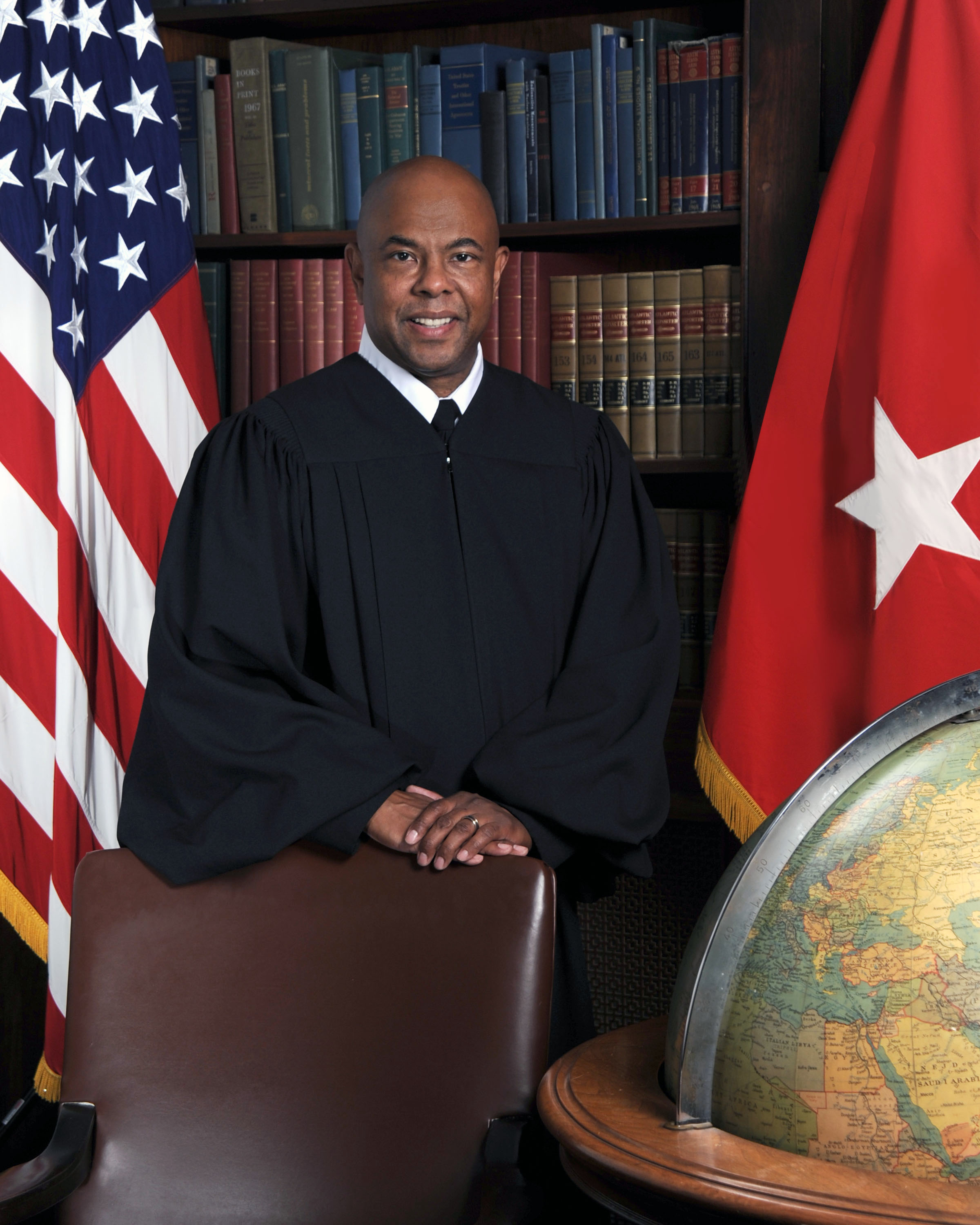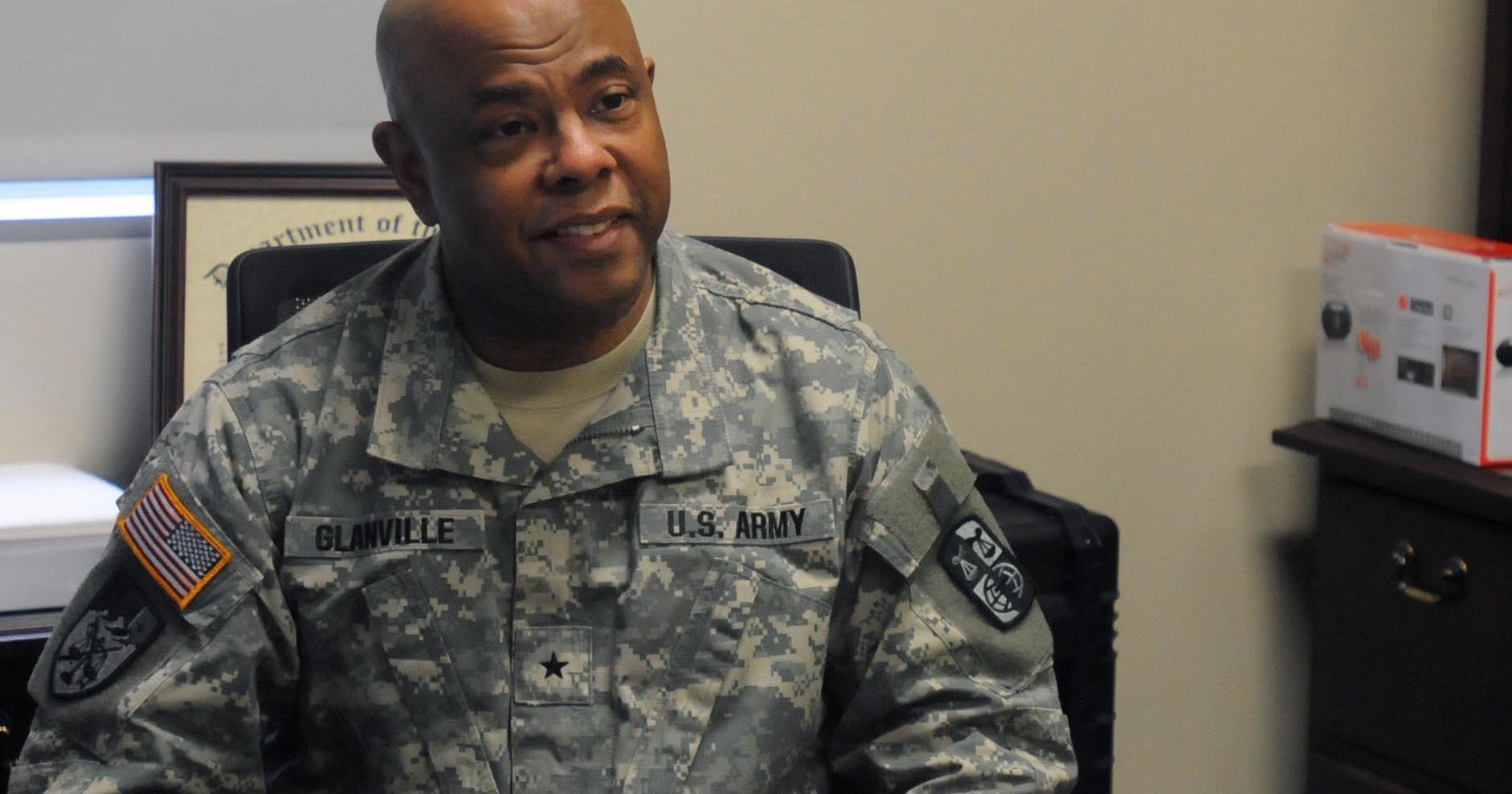 Army Reserve Profile: Brig. Gen. Ural Glanville
Army Reserve Profile: Brig. Gen. Ural Glanville
108th Training Command- Initial Entry Training
Story by Staff Sgt. Dee Jackson
“All rise,” is a sound that is all too familiar to everyone, whether by television or actually being in a courtroom for any number of reasons.
It’s a sound that has become almost second nature for many courtroom officials and for Brig. Gen. Ural Glanville, Chief Judge of United States Army Court of Criminal Appeals, one that sounds like much responsibility that he gladly accepts.
In his 11 years as a superior court judge, Glanville has presided over some very high profile cases. Cases that he believes he was able to finesse due to the things he learned in the military such as the Army Values, the Soldier’s creed, the warrior ethos and skills from the JAG Corps.
The skills that Army judge advocates acquire start early in the career. The entry process is very competitive and in addition to academics, applicants are expected to exhibit the leadership qualities befitting an Officer in service to his or her country, which makes the JAG Corps an excellent venue for young attorneys to gain experience in a competitive legal field.
“I joined the military because I needed money to go to college and law school and the Army was one of the only options you had for money,” he said.
Glanville graduated from the University of Georgia as a commissioned officer and later using, the delayed entry program, attended law school.
His accomplishments range from serving as a prosecutor, a criminal defense attorney and as a civil litigator, but his greatest accomplishment was being appointed as a Superior Court Judge in Fulton County, Georgia.
Being a dual citizen, is one of the hardest and most rewarding jobs one can have and Glanville has served in the United States Army Reserve for 30 years.
College money may have been the reason behind joining the military but Glanville credits his grandfather who served in WWII and his uncle who served in Korea, both Army veterans, in influencing him to join the Army.
Influence may have been the driving force to join the military but mentorship has helped guide his career. Glanville credits being mentored throughout his career as a reason he has been successful.
“I think it’s very important to have a mentor throughout your career,” said Glanville.
“Somebody that can educate you to the process, educate you on what’s important, show you what right looks like, stress to you the importance of self-study and groom you to accept and be ready for other leadership responsibilities” he said.

Serving over 25 years in uniform, Glanville has seen a lot of changes in the Army Reserve. From Soldiers to the uniform even careers (combat arms opening up to women) but one of the biggest things he has seen change in is leadership.
“Leaders should be sensitive to their Soldiers and willing to get involved with them. Leadership is now more accountable and with the advances in technology, information gets shared very quickly, so you have to be very sensitive to incidences that occur even if you are not on status,” said Glanville.
“To be a good leader you have to be a good follower and part of that is learning how to be a good mentor. You should always be opened to be a mentor and being mentored,” he said.
The Army Reserve is one of the backbones of this nation. It allows you to serve in the profession of arms career as well as a professional civilian career.
The Army/Reserve prides itself on being an American Profession of Arms; a vocation comprised of experts certified in the ethical application of land combat power, serving under civilian authority, entrusted to defend the Constitution and the rights and interests of the American people.
Being in the Army makes you a professional Soldier who is an expert, a volunteer certified in the Profession of Arms, who adheres to the highest ethical standards and a steward of the future of the Army profession.
Glanville stated that character; competence and commitment are not only the underpinnings of being a good lawyer but also a good Soldier.
“I never thought I would serve over 30 years in uniform’” said Glanville.
“But it’s been my honor to do so,” he said.